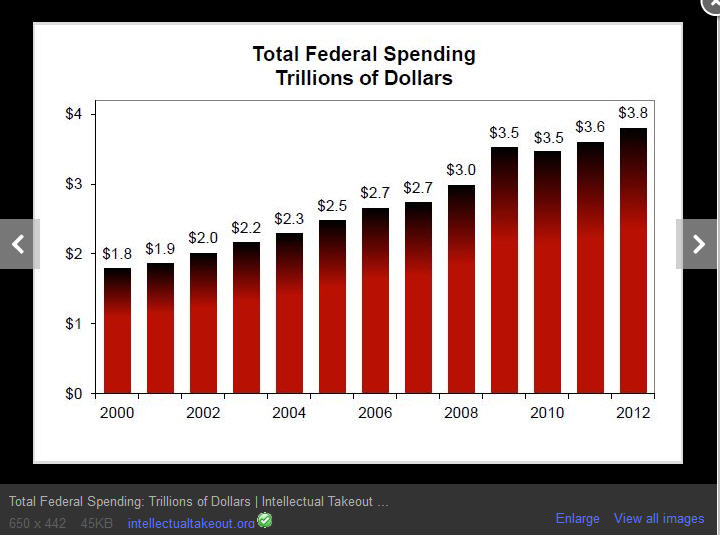Yesterday John Hinderaker at Power Line posted an article quoting a leak to the Washington Post on President Obama’s proposed budget. The Washington Post reported: “With 2015 budget request, Obama will call for an end to era of austerity:”
It has always been my belief that a picture is worth a thousand words. From Yahoo.com:
Where is the austerity?
However, there is more to the problem.
John Hinderaker reminds us:
But wait! Democrats and Republicans agreed on discretionary spending levels that supposedly were binding for a decade to come in the Budget Control Act, which included the sequester. Just a few months ago, the Ryan-Murray compromise modified the sequester and increased discretionary spending. That bipartisan agreement was supposed to put spending debates to rest for at least the next couple of years. Now, apparently, the Obama administration intends to throw all prior agreements into the trash can, and demand still higher spending.
This illustrates a point that I have made over and over: all budget agreements that purport to achieve savings over a long period of time, usually a decade, are a farce. The savings always come in the “out years,” but the out years never arrive. Once you get past the current fiscal year, budget agreements are not worth the paper they are printed on. For Republicans to agree to more spending today in exchange for hypothetical cuts in later years is folly–those cuts will never come.
Leadership in both political parties do not desire to cut federal spending. Their debate is only over which party will control the massive spending. That is why it is imperative that we change the establishment leadership of the Republican party. The Republicans used to be the party of small government, there is hope that they can be again. The Democrats have always supported big government. The only solution to this problem is new leadership in the Republican party.






